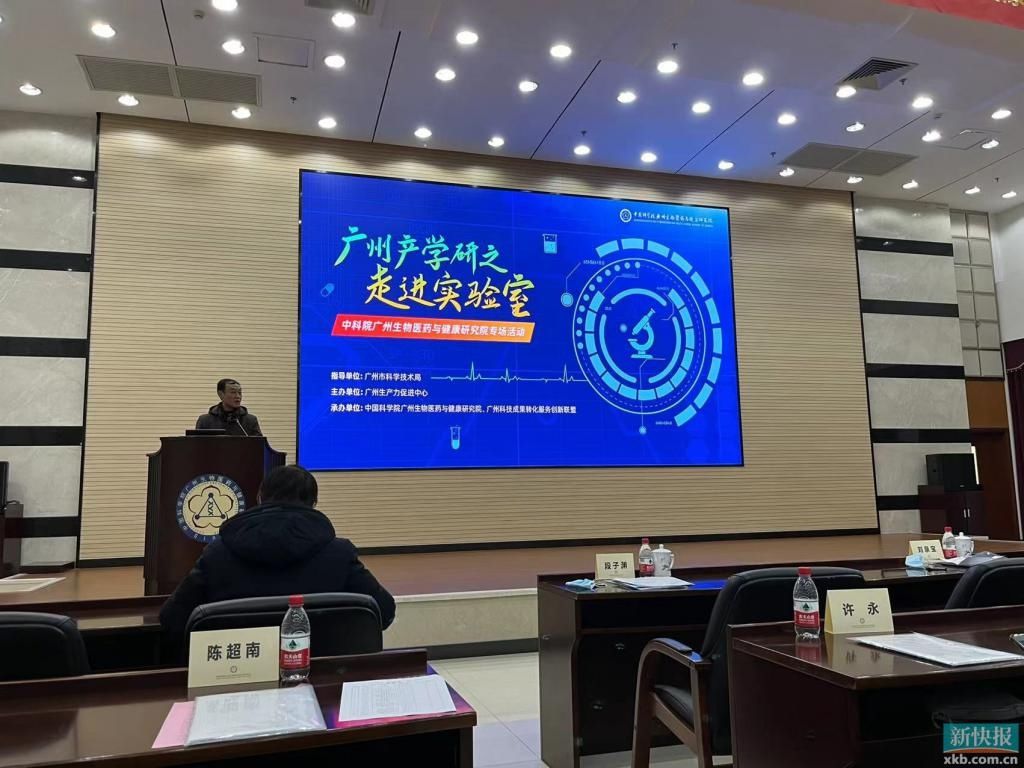New Express News On February 23, under the guidance of Guangzhou Science and Technology Bureau, Guangzhou Productivity Promotion Center held a new “Into the Laboratory” activity, organizing colleges and universities, hospitals, and biomedical enterprises to visit Guangzhou Biotechnology, Chinese Academy of Sciences The Institute of Medicine and Health (hereinafter referred to as: Guangzhou Health Institute) conducts high-level industry-university-research cooperation and exchanges.
The event focused on introducing the four key platforms of Guangzhou Health Center, including the Cell Standard Testing Laboratory, the Laboratory Animal Center, the Analysis and Testing Center, the Biomedical Data and Supercomputing Center, as well as the artificial intelligence and automation on target. Prospective technical achievements such as the application of point-specific drug molecular design, the construction of NSI severe immunodeficiency mouse model, and the development of drug resistance in prostate cancer. The delegates visited the key platforms and conducted in-depth discussions with the technical team on issues of industry-university-research cooperation, such as the standardization of stem cell quality assessment, the construction of disease infection animal models, the analysis and identification of biological macromolecules, and the security of biomedical databases.

Liu Quanbao, a second-level inspector of the Municipal Science and Technology Bureau, said that in recent years, the Municipal Science and Technology Bureau has focused on “scientific discovery, technological invention, industrial Development, talent support, ecological optimization” whole-chain innovation and development path, and constantly improve the technological innovation system with enterprises as the main body, market-oriented, and deep integration of production, education, research and application. “This event is one of the focal points of Guangzhou’s industry-university-research integration work, which will help promote the deep integration of Guangzhou’s biomedical innovation chain and industrial chain.”
Guangzhou Health Institute Party Secretary Duan Ziyuan said, This event is conducive to changing the status quo of closed topic selection by researchers, and promoting the transformation of scientific and technological research and development to the direction of market demand and open cooperation. Representatives of enterprises such as Baiyunshan Chen Liji and Liby Group spoke highly of the effect of the activity, and believed that Guangzhou Health Institute’s opening of key technology platforms and sharing of major infrastructure can meet the needs of enterprises for preparatory research and development and core technology research for talent teams and high-end equipment. Representatives of the Provincial People’s Hospital and the Biomedical Data and Supercomputing Center reached a preliminary intention to cooperate in disease risk prediction, and plan to use high-performance computing technology and resources to support the hospital’s multi-omics analysis research.
“Entering the Laboratory” is one of a series of activities to promote the deep integration of industry, university and research in Guangzhou, aiming to promote the openness and sharing of high-level laboratories and provide strong support services for basic research and industrial development. Guangzhou Health Center has the only CNAS-approved cell standardized testing platform in South China, and is a first-class new R&D institution in the domestic biological hospital and health field. This event is to explore a new model of deepening the integration of industry, academia and research in Guangzhou, promote the opening and sharing of high-level laboratories to technology enterprises, promote joint innovation with biomedical enterprises and institutions, strengthen the integration of biomedical research and development and market demand, and improve the effectiveness of industry-university-research cooperation. .
Written by: Xin Express reporter Chen Muyuan and correspondent Huang Luning